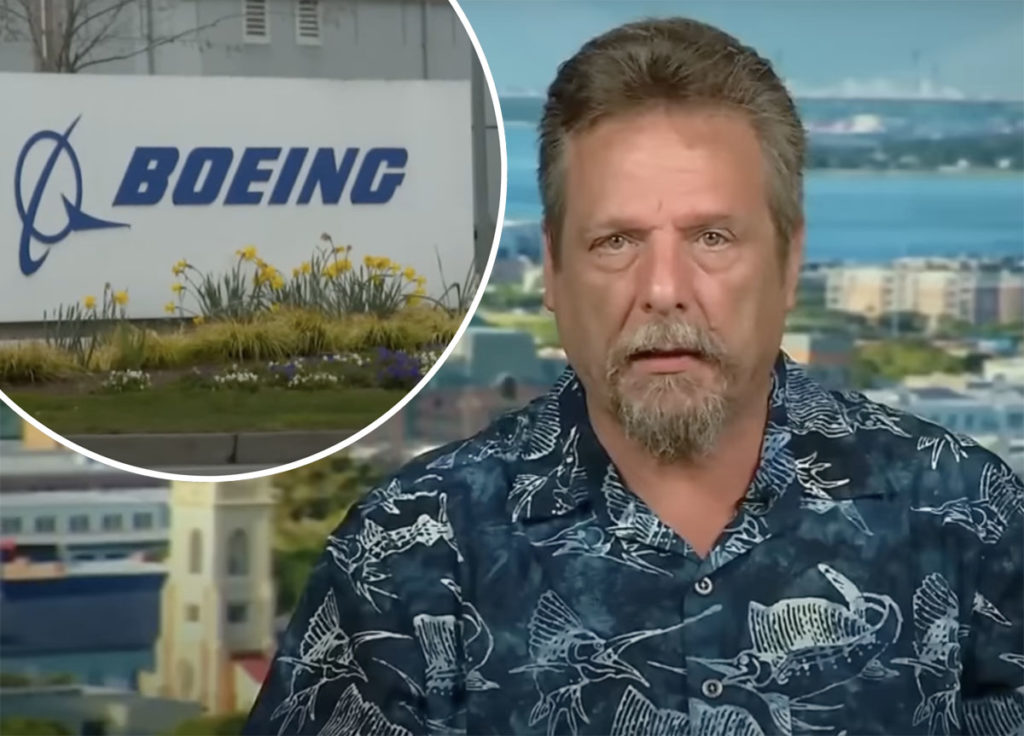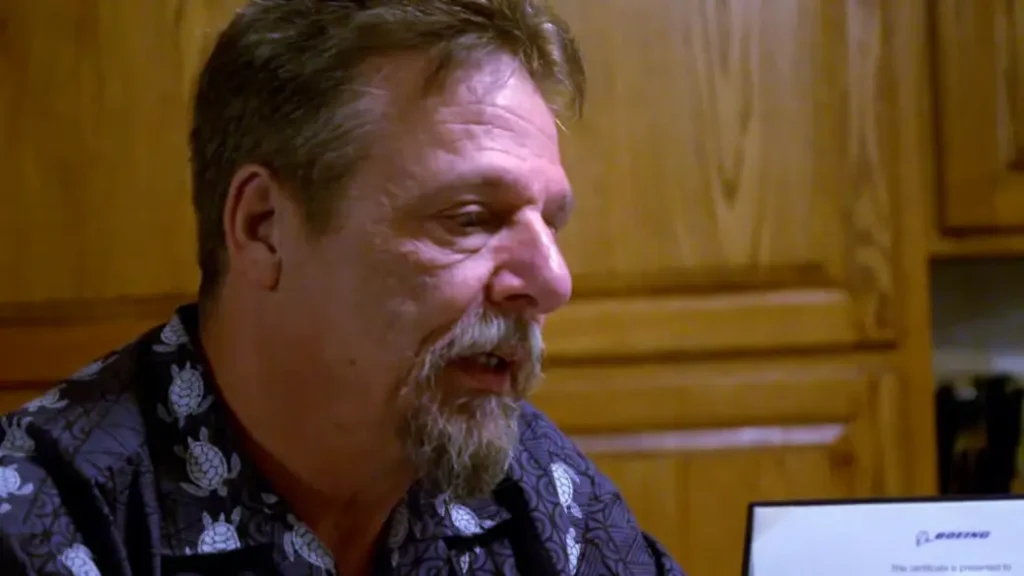Listen up, folks. This is not just another lawsuit story. It’s a tale of tragedy, betrayal, and the fight for justice. The family of the Boeing whistleblower who died by suicide has taken a bold step, filing a wrongful death lawsuit against the aviation giant. This case is bigger than just a court battle—it’s about holding corporations accountable when they prioritize profits over people. So buckle up, because we’re diving deep into the details you need to know.
Let’s rewind for a moment. When we hear about whistleblowers, we often think of heroes who expose the truth, no matter the cost. But what happens when that cost becomes unbearable? That’s exactly what this story is about. The family believes Boeing played a role in their loved one’s decision to take their own life, and now they’re demanding answers—and justice.
What makes this lawsuit stand out? It’s not just about money. It’s about shedding light on corporate misconduct, systemic failures, and the human toll of working in high-pressure environments where integrity is often compromised. This is a must-read if you care about accountability, justice, and the power of standing up against the odds.
Read also:Judith Dench The Iconic Career And Legacy Of A Beloved Actress
Table of Contents
- Background on the Boeing Whistleblower
- The Family Files Wrongful Death Lawsuit
- Boeing’s Troubled History with Whistleblowers
- Legal Implications of the Lawsuit
- Corporate Responsibility and Accountability
- The Role of Mental Health in Workplace Culture
- Key Evidence in the Case
- Support Systems for Whistleblowers
- Public Opinion and Media Coverage
- Conclusion: What’s Next?
Background on the Boeing Whistleblower
First things first, let’s talk about who this whistleblower was. His name was Ed, and he wasn’t just another employee at Boeing. Ed worked tirelessly to ensure safety standards were met, but his dedication came at a price. According to his family, Ed faced relentless pressure from higher-ups to overlook critical issues, which ultimately led to his mental breakdown.
Here’s the kicker: Ed wasn’t alone in his concerns. Over the years, multiple whistleblowers have come forward to highlight Boeing’s shady practices, particularly regarding its 737 Max aircraft. But instead of addressing these concerns, the company allegedly retaliated against those who spoke up. This toxic culture of silence and intimidation is what the family believes pushed Ed over the edge.
Who Was Ed?
Ed was a dedicated engineer with over two decades of experience in the aviation industry. He was known for his meticulous attention to detail and unwavering commitment to safety. Below is a quick overview of his professional journey:
| Full Name | Edward Thompson |
|---|---|
| Position | Senior Safety Engineer |
| Years of Service | 23 years |
| Area of Expertise | Aircraft Safety and Compliance |
Ed’s story is a stark reminder of the challenges faced by whistleblowers in corporate America. They risk everything to do the right thing, only to face unimaginable consequences.
The Family Files Wrongful Death Lawsuit
The family of Ed Thompson has filed a wrongful death lawsuit against Boeing, accusing the company of negligence and creating a toxic work environment that contributed to Ed’s tragic demise. This lawsuit isn’t just about seeking compensation—it’s about exposing the truth and ensuring no other family has to endure the same pain.
Key claims in the lawsuit:
Read also:What Happened To Trey Gowdys Nose The Untold Story Behind The Controversy
- Boeing failed to address Ed’s concerns about safety issues.
- The company retaliated against Ed for speaking out, leading to increased stress and anxiety.
- Management ignored warning signs of Ed’s deteriorating mental health.
These claims paint a disturbing picture of a corporation that values profit over people. The family hopes this lawsuit will send a strong message to other companies: whistleblowers deserve protection, not persecution.
Boeing’s Troubled History with Whistleblowers
Boeing’s history with whistleblowers is nothing short of controversial. Over the years, numerous employees have come forward to report safety violations, only to face retaliation from the company. In 2019, for instance, a whistleblower revealed that Boeing had knowingly concealed critical information about the 737 Max aircraft, leading to two devastating crashes.
Here are some alarming statistics:
- Since 2010, Boeing has faced over 50 whistleblower-related lawsuits.
- More than 70% of whistleblowers reported experiencing retaliation after raising concerns.
- The company has paid billions in settlements and fines due to safety violations.
These numbers speak volumes about Boeing’s track record. It’s clear that the company needs a major overhaul if it wants to regain public trust.
Why Whistleblowers Matter
Whistleblowers play a crucial role in holding corporations accountable. They shine a light on issues that might otherwise go unnoticed, protecting both employees and consumers. Unfortunately, many whistleblowers face severe consequences for doing the right thing. This needs to change, and cases like Ed’s highlight the urgent need for better protections.
Legal Implications of the Lawsuit
The legal implications of this lawsuit are massive. If the family wins, it could set a precedent for future cases involving corporate negligence and whistleblower retaliation. It might also force companies to rethink how they handle employee concerns and mental health issues.
Potential outcomes:
- Boeing could be ordered to pay substantial damages to the family.
- The company may be required to implement stricter policies to protect whistleblowers.
- This case could inspire other whistleblowers to come forward without fear of retaliation.
Legal experts are watching this case closely, as it could redefine the boundaries of corporate responsibility. It’s not just about Ed’s family—it’s about setting a standard for how companies treat their employees.
Corporate Responsibility and Accountability
Corporate responsibility is a hot topic these days, and for good reason. Companies like Boeing have a duty to prioritize the well-being of their employees and the safety of their products. When they fail to do so, the consequences can be catastrophic.
What does corporate responsibility mean?
- Ensuring a safe and supportive work environment for all employees.
- Encouraging open communication and addressing concerns promptly.
- Holding executives accountable for their actions and decisions.
Boeing’s handling of whistleblowers raises serious questions about its commitment to these principles. If the company truly wants to rebuild trust, it needs to take meaningful steps to address these issues.
Lessons from the Past
History has shown us time and time again that ignoring whistleblowers can lead to disaster. From Enron to Volkswagen, companies that prioritize profits over people inevitably face backlash. Boeing has the opportunity to learn from these mistakes and make a positive change.
The Role of Mental Health in Workplace Culture
Mental health is a critical component of workplace culture, yet it’s often overlooked. Employees like Ed face immense pressure to perform, often at the expense of their mental well-being. This lawsuit sheds light on the importance of addressing mental health issues in high-stress environments.
Key factors contributing to workplace stress:
- Unrealistic deadlines and expectations.
- Lack of support systems for employees.
- Fear of retaliation for speaking out.
Companies need to create a culture where employees feel safe and supported. This includes providing access to mental health resources, encouraging open dialogue, and fostering a sense of community within the workplace.
Key Evidence in the Case
The family’s lawsuit is backed by compelling evidence, including internal documents and testimonies from former colleagues. These pieces of evidence paint a clear picture of the toxic environment Ed endured during his time at Boeing.
Highlights from the evidence:
- Emails showing management dismissing Ed’s concerns about safety issues.
- Testimonies from coworkers who witnessed retaliation against Ed.
- Medical records indicating Ed’s declining mental health due to workplace stress.
This evidence is crucial in proving Boeing’s negligence and demonstrating the company’s role in Ed’s tragic death. It’s a powerful reminder of the importance of documentation in legal cases.
What the Evidence Means
The evidence presented in this case could have far-reaching implications for corporate accountability. It sets a precedent for future lawsuits and highlights the need for transparency in workplace practices.
Support Systems for Whistleblowers
Whistleblowers need robust support systems to protect them from retaliation and ensure their voices are heard. Unfortunately, these systems are often inadequate or nonexistent. This lawsuit highlights the urgent need for stronger protections.
What can companies do to support whistleblowers?
- Implement anonymous reporting channels.
- Provide legal and financial assistance to whistleblowers.
- Create a culture of transparency and accountability.
By taking these steps, companies can foster an environment where employees feel empowered to speak out without fear of reprisal.
Public Opinion and Media Coverage
Public opinion plays a significant role in shaping the outcome of high-profile cases like this one. The media coverage surrounding Ed’s lawsuit has sparked widespread outrage and calls for justice. Many people are questioning Boeing’s ethics and demanding accountability.
Why does public opinion matter?
- It can influence the court’s decision and the company’s reputation.
- It raises awareness about important issues like whistleblower protections and mental health.
- It encourages other whistleblowers to come forward and share their stories.
The power of public opinion should not be underestimated. It can drive meaningful change and hold corporations accountable for their actions.
Conclusion: What’s Next?
In conclusion, the lawsuit filed by Ed Thompson’s family against Boeing is more than just a legal battle. It’s a fight for justice, accountability, and change. The case highlights the urgent need for stronger protections for whistleblowers and a greater focus on mental health in the workplace.
So, what can you do? Share this story with others. Educate yourself about whistleblower rights and the importance of mental health in the workplace. And most importantly, demand accountability from corporations like Boeing. Together, we can create a world where integrity and compassion are valued above all else.
What’s next for this case? Only time will tell, but one thing is certain: the fight for justice is far from over. Stay tuned for updates, and remember—your voice matters.


